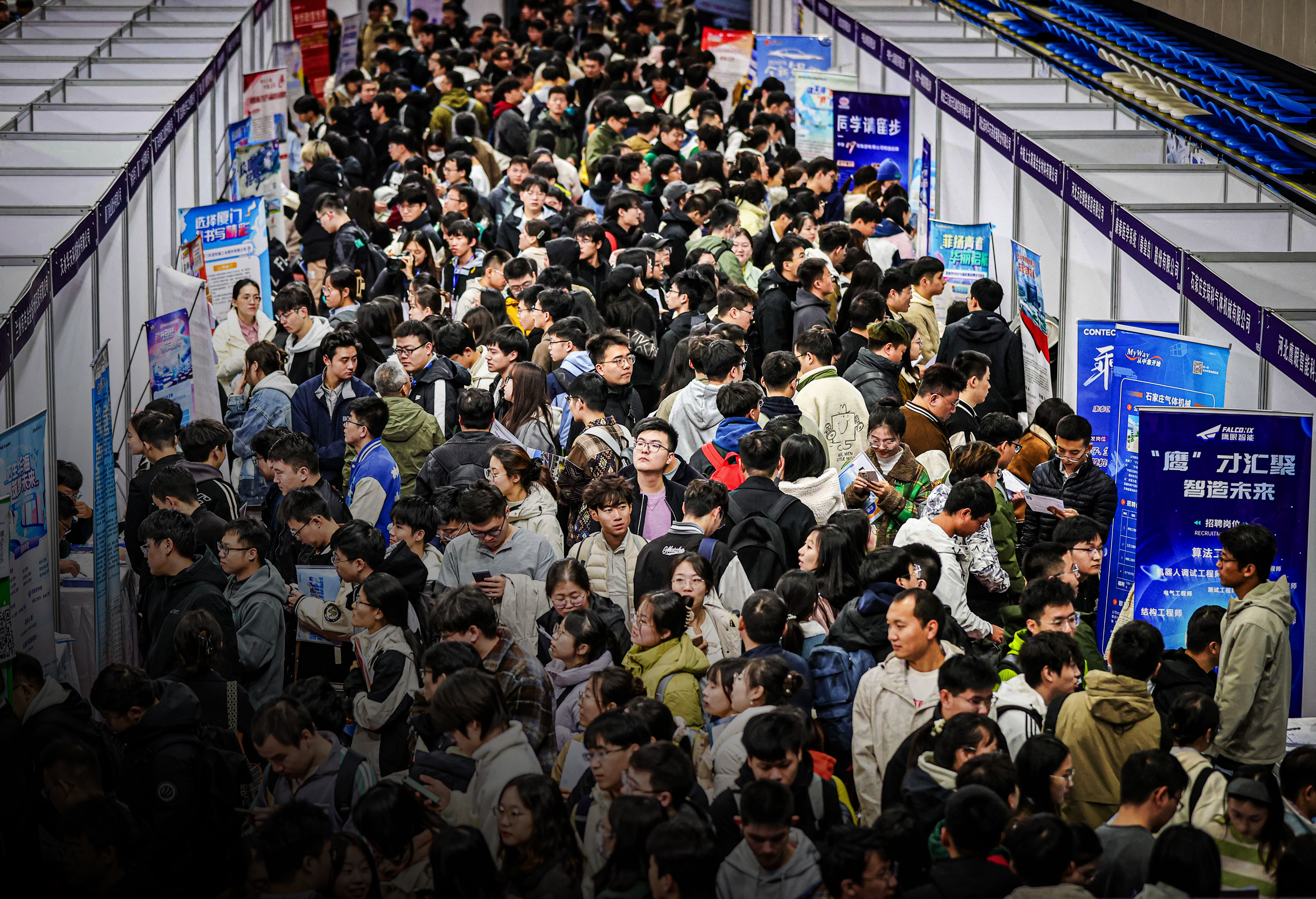In early April, Goldman Sachs forecast significant challenges for the Chinese economy and labor market, citing high U.S. tariffs, declining exports to the United States, and a slowing global economy.
The investment bank estimated that China could lose about 10 million to 20 million jobs that depend on U.S.-bound exports.
U.S.-based economist Davy Wong said the impact may be larger because of the indirect effects on various businesses, including suppliers for export manufacturers, packaging companies, and logistics companies.
“It could be between 30 million and 35 million jobs,” he told The Epoch Times, noting that the impact is “lethal” to China’s industrial cities.
Now, low-skilled laborers are also bracing for a jobless future as factories are expected to shut down, according to some individuals who spoke to The Epoch Times. The interviewees used pseudonyms to protect their identities because of safety concerns and the fear of retaliation from authorities.
Li, a factory worker in Shenzhen, said his employer’s clients are exporting significantly fewer garments than they did in the past. The factory supplies materials to textile manufacturers in nearby Dongguan, a major hub for exporting consumer goods, including clothing and LED monitors.
“They used to ship goods every day but not so much now. Lots of products were left in the warehouse,” Li said, noting that many U.S. orders were left stranded in containers at Shenzhen’s Yantian container shipyard.
“Job loss is inevitable; it’s already hard to find a job,” he said.


Li noted that his factory, which also exports products to Japan and the UK, has been less significantly affected than those exporters working with U.S. clients. However, the factory’s production has still decreased because of the effects of the tariff war.
Lee, an employment agent in Anhui Province, one of China’s major production bases of solar panels and electric cars, said he has seen a drastic change in the job market.
“Many industries are in decline; lots of factories went bust,” he said. “Many factories furloughed their workers, who are now limiting their consumption because they can’t make money.”
A few years ago, according to Lee, factories were actively hiring, and the average salary was 5,000 yuan (about $688) or more. Currently, many factories are adopting a four-day work week with no overtime, resulting in the average salary being cut in half.
Reverse Migration
Guo said many local restaurants are closing because a significant number of people are leaving Shenzhen.Shenzhen is one of China’s first-tier cities, attracting domestic migrant workers from smaller cities and rural areas who seek better job opportunities, higher wages, and improved living conditions. There are fewer than 20 such cities in China.
According to video footage posted on Douyin, the Chinese version of TikTok, migrants have been returning home early this year because of a lack of job opportunities in big cities.


Those who return to live in rural areas will be counted as rural unemployment, which Beijing does not publish. According to the National Bureau of Statistics, China’s urban unemployment rate in March was 5.2 percent.
Bleak Jobs Market
With the collapse of the housing market and the exodus of foreign investments in recent years, China’s university graduates were already struggling to find jobs. The situation has become worse this year, according to some job seekers.

In a video shared on Douyin on April 2, a business development professional advised viewers to not leave their jobs before securing a new one. The woman explained that she had changed jobs three times since 2022, successfully finding new positions in less than a week each time. However, she found it particularly challenging to do the same this year.
In early April, the state-owned China National Nuclear Corp. drew attention after posting a comment on WeChat, boasting that it had received nearly 1.2 million resumes for 1,730 vacancies.
After facing criticism for insensitivity toward young job seekers, the company deleted the post and announced plans to hire about 8,000 people.
The Epoch Times spoke to a number of people across China, who described a bleak picture for job seekers.
In Guangzhou, China’s largest electronics manufacturing hub and home to several lucrative industries, Zhang, a 23-year-old computer hardware engineering graduate who moved to the city in March, said he was taken aback by how difficult it was to find a job.
“I’d advise others not to come unless you have to,” he said.
Zhang said he tried to get a job at an electronics factory, where 50 young candidates were competing for two vacancies. People had to compete for even the most basic job on the production line, he said.
In Hangzhou, Zhejiang Province, Chen has been job hunting for about six months. She’s making ends meet by delivering take-out food using rented public bikes.
It’s tough to find employment in any industry this year, she said. “I feel completely lost now. I have no choice but to do the most basic jobs,” Chen said.
In Guiyang, Guizhou Province, Yang, an economics undergraduate, became indebted after losing her job at a local government department a few months ago, as she has been unable to find other employment since.
“I was in the middle of my contract when the department laid off employees,“ she said. ”To avoid paying compensation, they cut my salary [to force me out instead of letting me go], but I couldn’t accept it, so I left.”
Yang said she is drowning in debt and that her contact information was made public by debt collectors.
















